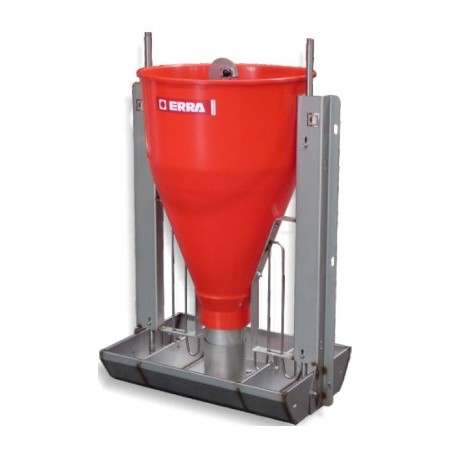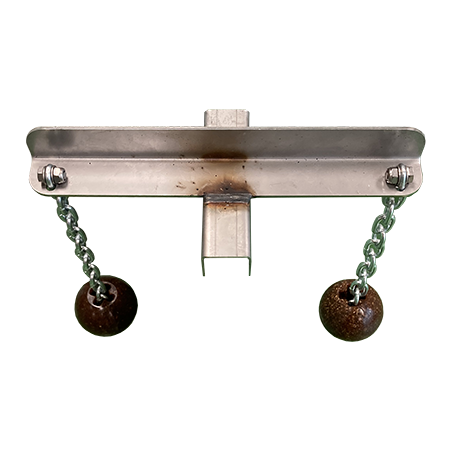Seaweeds are a source of active compounds that demonstrate positive health effects, such as prebiotic, antibacterial, antioxidant, anti-inflammatory and immunostimulant effects. In pigs’ nutrition, seaweeds show beneficial influence on the digestibility of feed, health and welfare. On the other hand, concerns associated with the increase in Cu and Zn load in the environment derived from piggery effluents require replacing traditionally inorganic salts with organic forms of minerals that can increase the mineral absorption and retention in the pig. Enriched macroalgae have the potential to be an alternative for inorganic salts as it has been found that the bioavailability of microelements to pigs from algae was higher than from inorganic salts. The objective of the study was to examine the effect of macroalga Enteromorpha sp. enriched with Zn(II) and Cu(II) ions on daily amounts of feces and urine excreted by growing pigs, apparent fecal nutrient digestibility and daily nitrogen balance and retention, meat quality and the slaughter value of carcasses. For this purpose, 24 growing pigs (Polish Landrace/Polish Large White x Hampshire/Pietrain) were kept in individual pens. Animals were divided in a control group, where the requirement for zinc and copper was covered by inorganic salts, and an experimental group, where algae enriched with these elements via biosorption were supplemented. The duration of feeding experiments was 87 days.
No effect of Enteromorpha sp. on the increase in digestibility of dry matter, dry organic matter, crude protein, crude fat and nitrogen-free extractives was observed. Statistically significant differences concerned only the digestibility of crude ash. The daily amount of excreted feces and urine did not differ significantly between groups. Meat from pigs in the algal group was characterized by a lower water absorption and drip loss and contained less fat and more protein than meat from the control group. Furthermore, a slight darkening of the meat was observed. The weight of the liver was lower in pigs from the algal group.

Enriched macroalga Enteromorpha sp. had no negative effect on the examined parameters and therefore may be introduced in pig nutrition as a feed material as an alternative to inorganic salts.
Michalak I, Chojnacka K, Korniewicz D. Effect of Marine Macroalga Enteromorpha sp. Enriched with Zn (II) and Cu (II) ions on the Digestibility, Meat Quality and Carcass Characteristics of Growing Pigs. Journal of Marine Science and Engineering. 2020; 8(5): 347. https://doi.org/10.3390/jmse8050347





